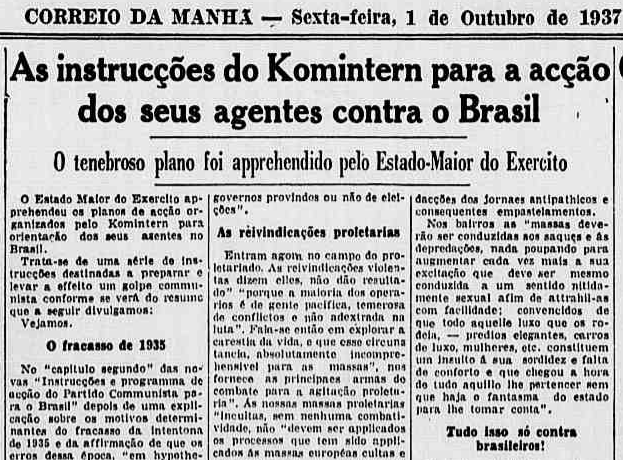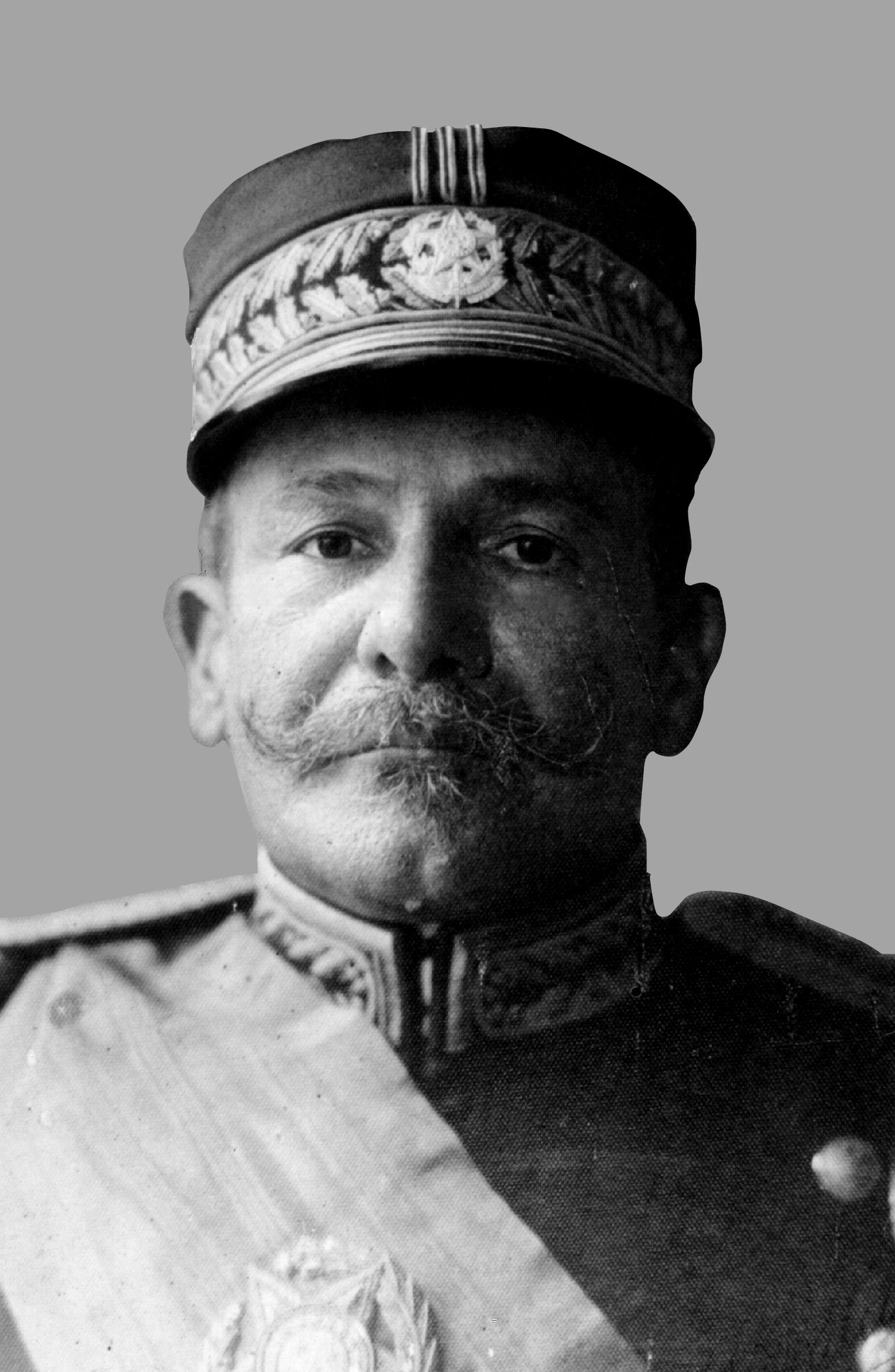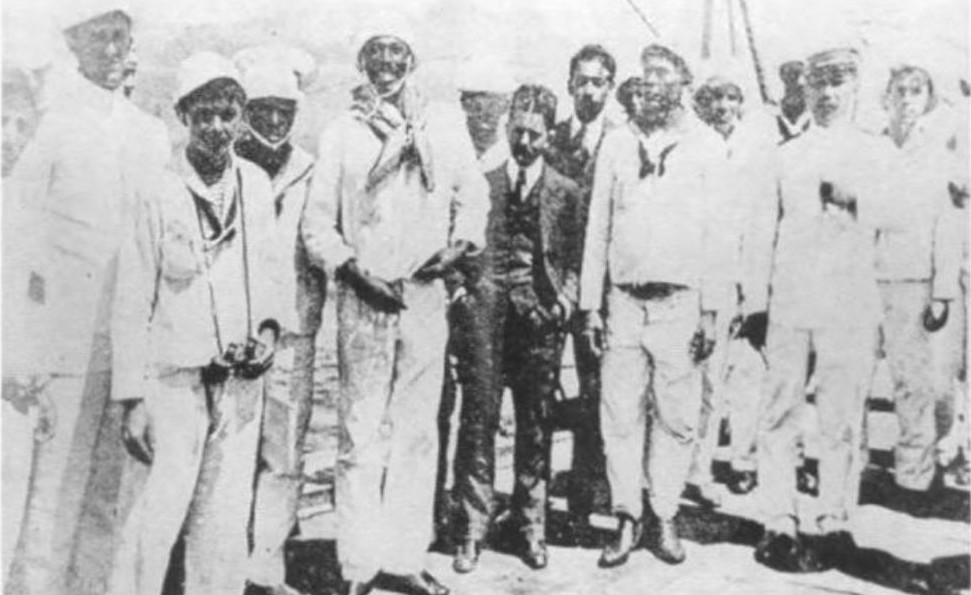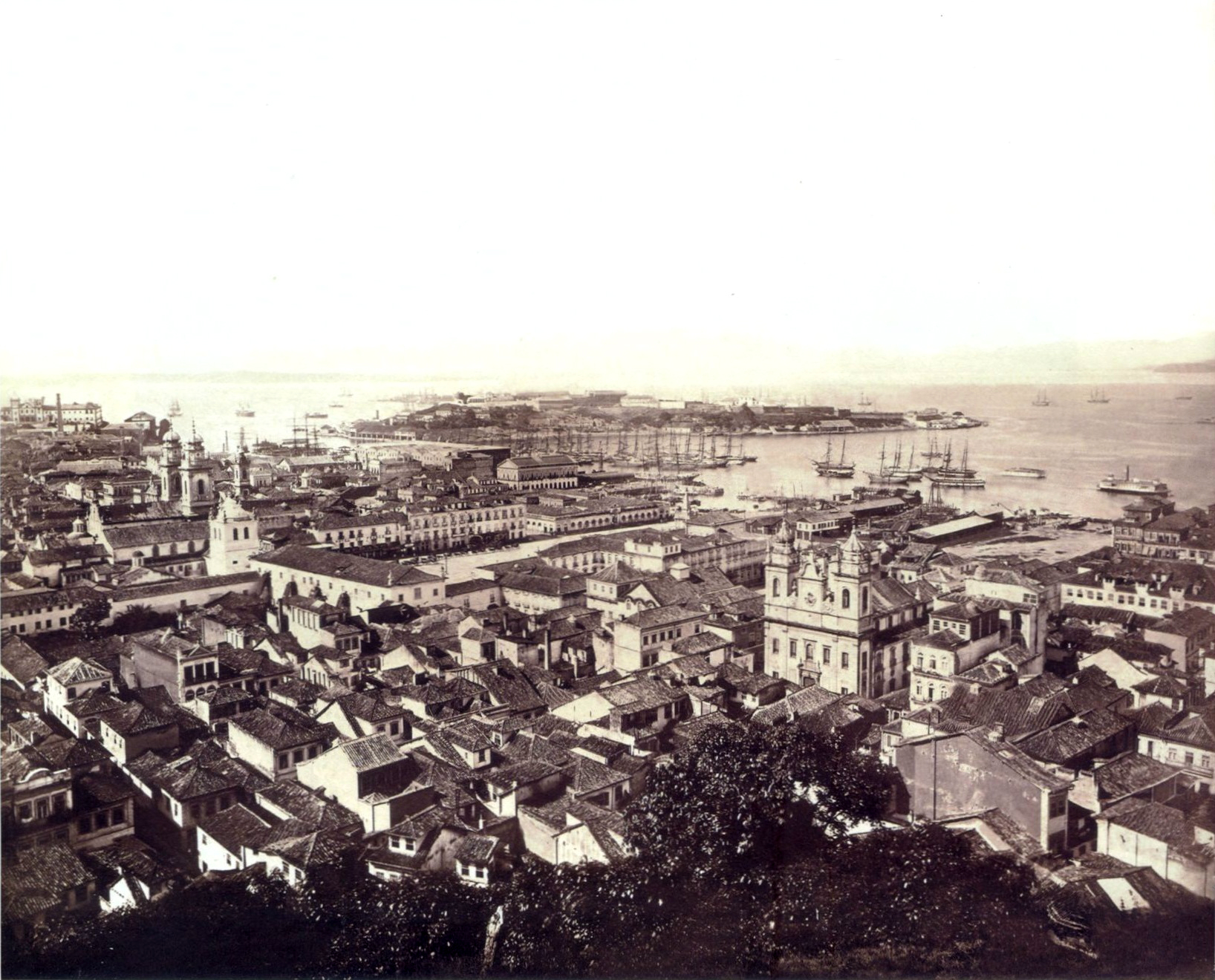|
Rebellions And Revolutions In Brazil
This article lists major rebellions and revolutions that have taken place during History of Brazil, Brazilian history. Colonial Brazil (1500–1822) * Vila Rica Revolt (1720) * Colonial Brazil#Runaway slave settlements, Slave rebellions (peaked in the mid-17th century and persisted until Lei Áurea, abolition) * (1789) * 1798 Revolt of the Alfaiates, Tailors' Conspiracy (1798) Empire of Brazil (1822–1889) * Irish and German Mercenary Soldiers' Revolt (1828) * Cabanada (1832–1835) * Malê Revolt (1835) * Cabanagem (1835–1840) * Ragamuffin War (1835–1845) * Sabinada (1837–1838) * Balaiada (1838–1841) * Liberal rebellions of 1842 (Empire of Brazil), Liberal rebellions (1842) * Praieira revolt (1848) * Quebra–Quilos revolt (1874–1875) Republic (1889–present) 1st Republican period (1889–1930) * Revolta da Armada, Naval Revolt (1891–1894) * Federalist Revolution (1893–1895) * War of Canudos (1896–97) * Vaccine Revolt (1904) * Revolt of the Lash (1910) * C ... [...More Info...] [...Related Items...] OR: [Wikipedia] [Google] [Baidu] |
Rebellion
Rebellion is an uprising that resists and is organized against one's government. A rebel is a person who engages in a rebellion. A rebel group is a consciously coordinated group that seeks to gain political control over an entire state or a portion of a state. A rebellion is often caused by political, religious, or social grievances that originate from a perceived inequality or marginalization. ''Rebellion'' comes from Latin ''re'' and ''bellum'', and in Lockian philosophy refers to the Right of revolution, responsibility of the people to overthrow unjust government. Classification Uprisings which revolt, Resistance movement, resisting and taking direct action against an authority, law or policy, as well as organize, are rebellions. An insurrection is an uprising to change the government. If a government does not recognize rebels as belligerents, then they are insurgents and the revolt is an insurgency. In a larger conflict, the rebels may be recognized as belligerents ... [...More Info...] [...Related Items...] OR: [Wikipedia] [Google] [Baidu] |
Quebra–Quilos Revolt
The Quebra–Quilos revolt (Portuguese: ''revolta do Quebra-Quilos'', literally, "revolt of the kilogram-breaker") was a three-month-long revolt in opposition to the proposed transition to the metric system in Brazil. The unrest took place from 31 October 1874 to January 1875 as part of wider anti-government protests. Background The metric system was first introduced in Brazil in 1862 as a rebellion against the monopoly established by foreign merchants. Slaves took part on occasions demanding emancipation. Through January the revolt died on its own, without any drastic intervention by the army. The spread of the revolt led to involvement of groups with different goals, such as slaves demanding emancipation, anti masonic clergy and conscientious objectors. The revolt was caused by the implementation of a variety of provincial and municipal taxes, that rendered goods unaffordable for a large portion of the population. The adoption of the metric system further increased prices, as m ... [...More Info...] [...Related Items...] OR: [Wikipedia] [Google] [Baidu] |
Integralist Uprising
The Integralist Uprising () was a failed coup d'état, coup by the Brazilian Integralist Action (AIB) against the government of president Getúlio Vargas during the Estado Novo (Brazil), Estado Novo in Brazil. The AIB was created due to the radicalization of politics following the successful Revolution of 1930, which had brought Vargas to power, and the 1932 Constitutionalist Revolution, which had undermined revolutionary politics in favor of political extremes. Its creator, Plínio Salgado, had been influenced by fascism, ultimately starting the ritual-based, far-right organization. In 1935, another movement at the opposite end of the political spectrum, the communist-backed National Liberation Alliance (Brazil), National Liberation Alliance, attempted a Brazilian communist uprising of 1935, failed revolution against the Federal government of Brazil, federal government. This gave pretext for the government to move in an authoritarian and repressive direction against the constit ... [...More Info...] [...Related Items...] OR: [Wikipedia] [Google] [Baidu] |
Communist Uprising Of 1935
The 1935 Brazilian communist uprising ( Portuguese: ''Intentona Comunista'') was a military revolt in Brazil led by Luís Carlos Prestes and leftist low-rank military against Getúlio Vargas's government on behalf of the National Liberation Alliance (''Aliança Nacional Libertadora -'' ANL). It took place in the cities of Natal, Recife, and the capital Rio de Janeiro between 23 and 27 November 1935. The uprising was supported by the Brazilian Communist Party (PCB), then called the Communist Party of Brazil, and the Communist International. Background In July 1934, with the approval of Brazil's new constitution and the election of Vargas, the country entered a period of constitutional normality, although no one was satisfied. President Getúlio Vargas declared himself against the constitutional regime despite his authoritative role. Other opposing factions within Brazil's politics shared his point of view that the new government was weak and thus began to plot its overthrow. ... [...More Info...] [...Related Items...] OR: [Wikipedia] [Google] [Baidu] |
Constitutionalist Revolution
The Constitutionalist Revolution of 1932 (sometimes also referred to as Paulista War or Brazilian Civil War) is the name given to the uprising of the population of the Brazilian state of São Paulo against the Brazilian Revolution of 1930 when Getúlio Vargas assumed the nation's presidency; Vargas was supported by the people, the military and the political elites of Minas Gerais, Rio Grande do Sul and Paraíba. The movement grew out of local resentment over the fact that Vargas ruled by decree, unbound by a Constitution, in a provisional government. The 1930 Revolution also affected São Paulo by eroding the autonomy that states enjoyed during the term of the 1891 Constitution and preventing the inauguration of the governor of São Paulo, Júlio Prestes, who had been elected president of Brazil in 1930, while simultaneously overthrowing President Washington Luís, who was governor of São Paulo from 1920 to 1924. These events marked the end of the First Brazilian Republ ... [...More Info...] [...Related Items...] OR: [Wikipedia] [Google] [Baidu] |
Revolution Of 1930
The Revolution of 1930 () was an armed insurrection across Brazil that ended the Old Republic. The revolution replaced incumbent president Washington Luís with defeated presidential candidate and revolutionary leader Getúlio Vargas, concluding the political hegemony of a four-decade-old oligarchy and beginning the Vargas Era. For most of the late 19th and early 20th centuries, Brazilian politics had been controlled by an alliance between the states of São Paulo and Minas Gerais. The presidency had alternated between them every election until 1929, when incumbent President Washington Luís declared his successor would be Júlio Prestes, also from São Paulo. In response to the betrayal of the oligarchy, Minas Gerais, Rio Grande do Sul, and Paraíba formed a Liberal Alliance backing opposition candidate Getúlio Vargas, president of Rio Grande do Sul. The Alliance denounced the victory of Prestes in the March 1930 presidential election as fraudulent. They went no furth ... [...More Info...] [...Related Items...] OR: [Wikipedia] [Google] [Baidu] |
Tenente Revolts
Tenentism () was a political philosophy of junior army officers (, , "lieutenants") who significantly contributed to the Brazilian Revolution of 1930 that ended the First Brazilian Republic. Background The first decades of the 20th century saw marked economic and social change in Brazil. With industrialization on the rise, the Federal government of Brazil, federal government — dominated by the coffee oligarchs and the old order of Milk coffee politics, ''café com leite'' politics and ''Coronelism, coronelismo'' — came under threat from the political aspirations of new urban groups: the proletariat, government and white-collar workers, merchants, bankers, and industrialists. In parallel, growing prosperity encouraged a rapid rise of a new working class of Southern and Eastern European immigrants who contributed to the growth of Trade union, trade unionism, Anarchism in Brazil, anarchism, and Socialism in Brazil, socialism in Brazil. In the post-World War I period, Brazil saw ... [...More Info...] [...Related Items...] OR: [Wikipedia] [Google] [Baidu] |
Anarchism In Brazil
Anarchism was an influential contributor to the social politics of the First Brazilian Republic. During the epoch of transatlantic migrations, mass migrations of European labourers at the end of the nineteenth and the beginning of the twentieth century, Anarchism, anarchist ideas started to spread, particularly amongst the country’s labour movement. Along with the labour migrants, many Italo-Brazilian, Italian, Spanish, Portuguese and German political exiles arrived, many holding anarchist or Anarcho-syndicalism, anarcho-syndicalist ideas. Some did not come as exiles but rather as a type of political entrepreneur, including Giovanni Rossi (anarchist), Giovanni Rossi's anarchist Commune (intentional community), commune, the Cecília Colony, which lasted few years but at one point consisted of 200 individuals. The working conditions and the oligarchic political system of the First Republic, which made it difficult for workers to participate, meant that anarchism quickly gained s ... [...More Info...] [...Related Items...] OR: [Wikipedia] [Google] [Baidu] |
Juazeiro Sedition
The Juazeiro Sedition, also known as the Juazeiro Revolt, was a conflict that happened in 1914 in the backlands of Cariri, in the interior of the state of Ceará. It involved the oligarchies of Ceará and the federal government and was provoked by the interference of central power in state politics in the early decades of the 20th century. Under the leadership of Floro Bartolomeu, Nogueira Acioly and Padre Cícero, an army of peasants resisted the invasion of federal government forces and marched to Fortaleza to depose Franco Rabelo. After the revolt, Padre Cícero was retaliated against by the Church. However, he remained a figurehead of politics in Ceará for more than a decade and did not lose his influence over the peasant population, who came to venerate him as a saint and prophet. In Juazeiro do Norte, a huge monument erected in his honor attracts crowds of pilgrims every year. Brazilian political context From 1894 onwards, the First Republic began to consolidate in ... [...More Info...] [...Related Items...] OR: [Wikipedia] [Google] [Baidu] |
Contestado War
The Contestado War (), broadly speaking, was a guerrilla war for land between settlers and landowners, the latter supported by the Brazilian state's police and military forces, that lasted from October 1912 to August 1916. It was fought in an inland southern region of the country, rich in wood and yerba mate, that was called Contestado because it was contested by the states of Paraná (state), Paraná and Santa Catarina (state), Santa Catarina as well as Argentina. The war had its casus belli in the social conflicts in the region, the result of local disobediences, particularly regarding the regularization of land ownership on the part of the caboclos. The conflict was permeated by religious fanaticism expressed by the messianism and faith of the rebellious caboclos that they were engaged in a religious war; at the same time, it reflected the dissatisfaction of the population with its material situation. Background Status of monks The Contestado War is often considered to have ... [...More Info...] [...Related Items...] OR: [Wikipedia] [Google] [Baidu] |
Revolt Of The Lash
The Revolt of the Lash () was a naval mutiny in Rio de Janeiro, Brazil, in late November 1910. It was the direct result of the use of whips ("lashes") by white naval officers when punishing Afro-Brazilian and mixed-race enlisted sailors. At the beginning of the new century rising demand for coffee and rubber enabled Brazilian politicians to attempt to transform their country into an international power. A key part of this would come from modernizing the Brazilian Navy, which had been neglected since the coup, by purchasing battleships of the new "dreadnought" type. Social conditions in the Brazilian Navy, however, did not keep pace with this new technology. Elite white officers were in charge of mostly black and mixed-race crewmen, many of whom had been forced into the navy on long-term contracts. These officers frequently inflicted corporal punishment on the crewmen for major and minor offenses alike despite the practice's ban in most other countries and in the rest of Brazil. ... [...More Info...] [...Related Items...] OR: [Wikipedia] [Google] [Baidu] |
Vaccine Revolt
The Vaccine Revolt () was a popular riot that took place between 10 and 16 November 1904 in the city of Rio de Janeiro, then the capital of Brazil. Its immediate pretext was a law that made vaccination against smallpox compulsory, but it is also associated with deeper causes, such as the urban reforms being carried out by mayor Pereira Passos and the sanitation campaigns led by physician Oswaldo Cruz. At the beginning of the 20th century, the urban planning of the city of Rio de Janeiro, inherited from the Colonial Brazil, colonial period and the Empire of Brazil, Brazilian Empire, no longer matched its status as a capital and center of economic activities. In addition, the city suffered from serious public health problems. Diseases such as smallpox, bubonic plague and yellow fever ravaged the population and worried the authorities. In order to modernize the city and control such epidemics, president Francisco de Paula Rodrigues Alves, Rodrigues Alves initiated a series of urban a ... [...More Info...] [...Related Items...] OR: [Wikipedia] [Google] [Baidu] |





